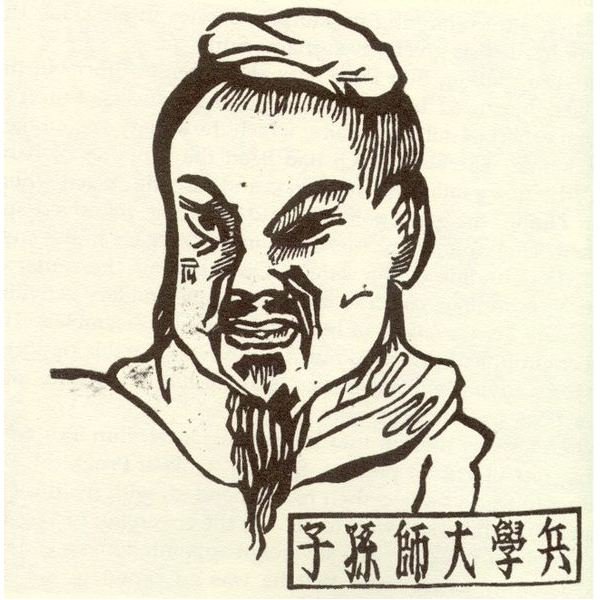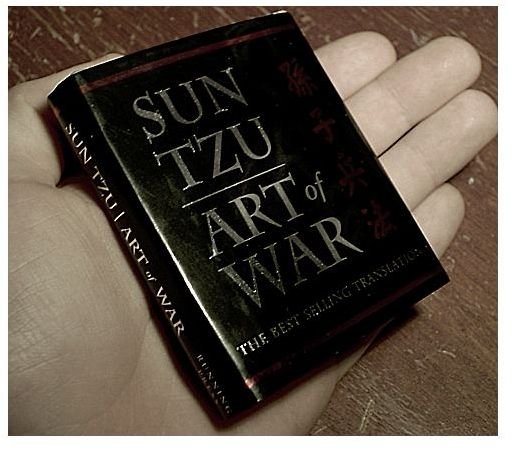What Can we Learn About Entrepreneurship from Sun Tzu's "The Art of War"
What do military generals and entrepreneurs have in common? Are there parallels that can be drawn from military science and building a business? What do warfare strategy and creating a new product have to do with one another?
At times building a business can feel like outright war. Businesses by nature are competitive with one another. Business leaders have studied military strategy for years, one of the foremost texts being Sun Tzu’s ancient manuscript, The Art of War. Written over 2500 years ago, Sun Tzu’s thesis is to “win all without fighting,” or to capture the market without heading into a blood bath against your competition. Sun Tzu’s prophetic text predicted the outcomes of pivotal moments in military history such as Gettysburg, D-Day, and the Tet Offensive; moreover, teachings from his book are also applicable to recent entrepreneurs’ wins and losses on the business battlefield known as the marketplace.
View the infographic here: https://yourgreenpal.com/img_ts/img/SunTzu_smallBusiness.jpg
Assessing the Competition
Sun Tzu says, “If you know the enemy and know yourself, you need not fear the result of a hundred battles.”
Sun Tzu cautions us to study our competition to ascertain what gaps they are leaving unserved in the market place. This is primarily intended to avoid engaging the established competition head on, which will ultimately lead to a financial blood bath. By leveraging disruptive technologies and consumer/social changes and shifts, he encourages us to know our competition’s weakness as well as our own, and more importantly, our strengths to attack the opportunities in the marketplace underserved by competition.
This can be illustrated by the successful startup Mint, a personal finances management tool. Mint entered into a competitive market place against robust industry incumbents such as a Quicken. Rather than attacking Quicken head on, Mint focused on creating a product for the underserved younger demographic, developing an application with clean and simple user interface that resonated with younger users. Mint was ultimately acquired by Quicken’s parent company Intuit for $170M.
Product Development

Sun Tzu says, “Victorious warriors win first and then go to war, while defeated warriors go to war first and then seek to win.”
Sun Tzu’s prophecy foreshadows the importance of the lean product development methodology, essentially creating a minimal version of the product with core features, test launching that product and incrementally improving it from early user feedback. This proposed capital efficient exercise conserves resources and focuses the team’s attention on the product itself. Once the product is iterated to a version with features and an interface guided by user feedback, then it will be ready for larger scaled launch. In essence, this is a “win” before going to war. Sun Tzu says, “Defeated warriors go to war first and then seek to win.” This can be demonstrated with colossal product failures such as Color, a photo sharing app that launched in 2010.
Color had all the right investors, raising a $41M war chest before heading into war. When Color launched, early adopters were disinterested, cited a confusing interface and little privacy controls, as all photos were public. The app had a high churn rate of early users, as they could not easily figure out how to use the app. Ultimately, Color’s failure could have been predicted by Sun Tzu as the company rushed into war against Facebook and other established incumbents in search of victory along the way. Had Color scored a “win” with early adopters before launching into war, they could have pivoted strategy much sooner before they exhausted their resources on the battle field attempting to execute a hopeless battle plan.
Intensity and Commitment
Sun Tzu says, “Confront them with annihilation, and they will then survive; plunge them into a deadly situation, and they will then live. When people fall into danger, they are then able to strive for victory.”
Small passionate teams dedicated and focused on a common mission are extremely effective and can achieve anything. When everyone on the team has bought in to a-go-for-broke mentality, each is capable of achievement far beyond what he/she ever thought possible.
When PayPal was in infancy and raising their initial funding, the team came up with an idea to consummate their initial venture funding round by actually transferring the funds from their venture capital partner via two handheld devices on the PayPal platform. It was an incredible testament to the security of the new payment platform. There was just one problem; the functionality to complete the transaction on mobile devices was not functional. PayPal CTO Max Levchin and his team were confronted with annihilation; they had no choice to but to get the code written, tested, and deployed in time for the ceremonial closing of the needed funding. In the book, Founders at Work by Jessica Livingston, Levchin describes that day:
There were about a dozen TV cameras and journalists—there was really big coverage. We did the beaming, and some group showed up late and said, “Well, can you do it again?” I said, “No, I just slaved away for 5 days straight—for 5 months straight. The whole point of the security is that you can’t replicate the transaction. Once it’s done, the money has changed hands.” So these guys actually made Peter pretend like it was going to happen and turned away the screen—because the screen was actually saying, “Security breach! Don’t try to resend the same money again.” Which was a triumph for me, but a pain in the ass for the camera. As I was getting interviewed by the Wall Street Journal, or some big pub guy, all I remember was that he went off to the bathroom for a second, and they brought out my omelet. The next thing I remember, I woke up, and I was on the side of my own omelet, and there was no one at Buck’s. Everyone was gone. They just let me sleep.
Sun Tzu’s prophesies are timeless principles entrepreneurs and business leaders can implement to have clarity of their mission, their purpose, and their commitment to the success of their teams’ objectives. While it may feel silly for entrepreneurs to akin themselves to ancient warfare generals, Sun Tzu’s teachings apply, and are implemented by today’s successful entrepreneurs and ignored by the unsuccessful.
About the Author: Bryan Clayton is a serial Entrepreneur and Co-founder of GreenPal. He helps consumers source lawn care providers via an online marketplace. Connect with him on LinkedIn or follow him on Twitter @YourGreenPal.
References
- Photo by Kallemax at en.wikipedia [Public domain], from Wikimedia Commons
- By FrankWilliams at en.wikipedia (Transferred from en.wikipedia) [Public domain], from Wikimedia Commons
